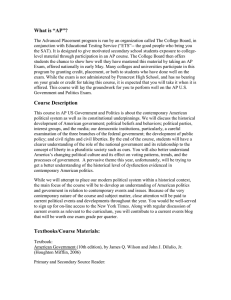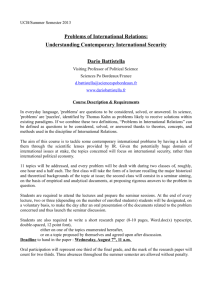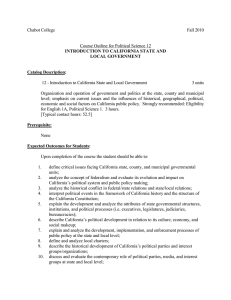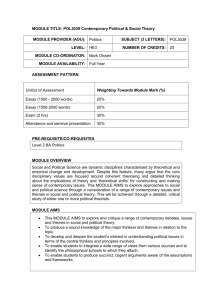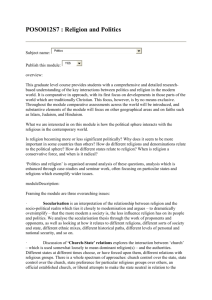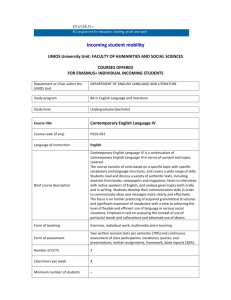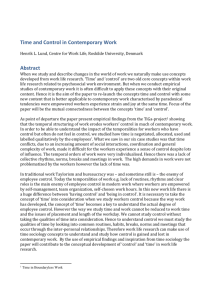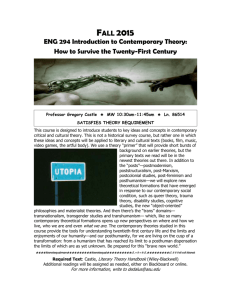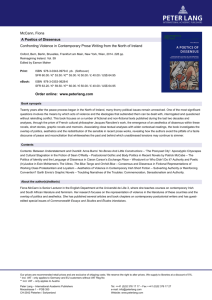OIR 302 Contemporary Issues in Global Politics 48.9 Kb
advertisement
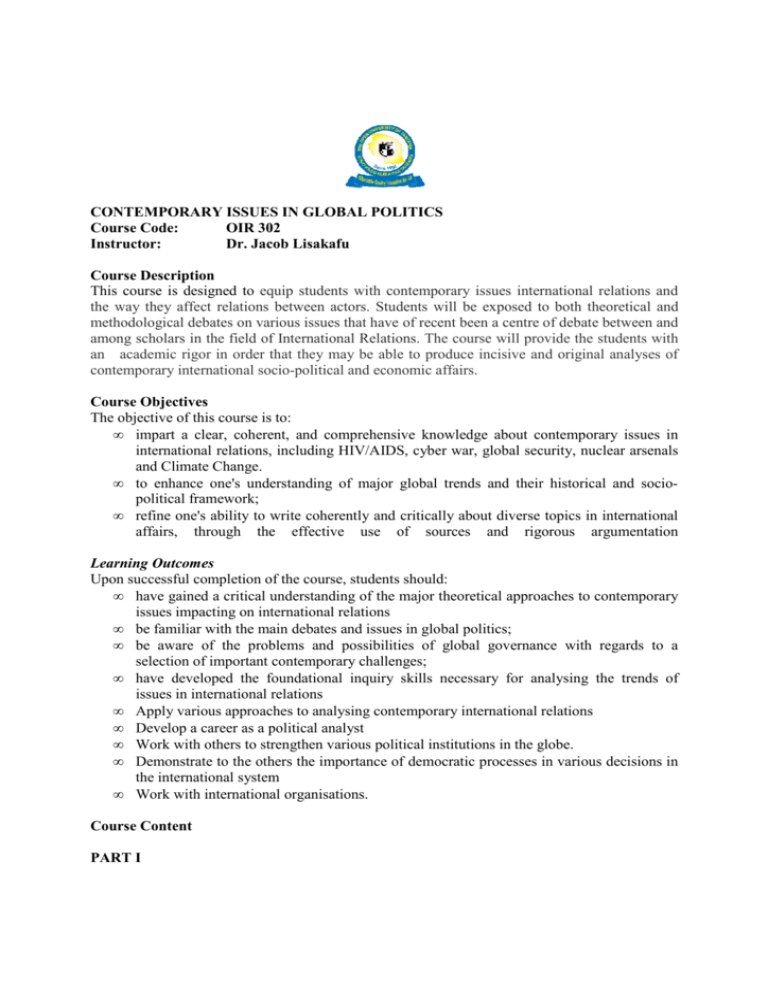
CONTEMPORARY ISSUES IN GLOBAL POLITICS Course Code: OIR 302 Instructor: Dr. Jacob Lisakafu Course Description This course is designed to equip students with contemporary issues international relations and the way they affect relations between actors. Students will be exposed to both theoretical and methodological debates on various issues that have of recent been a centre of debate between and among scholars in the field of International Relations. The course will provide the students with an academic rigor in order that they may be able to produce incisive and original analyses of contemporary international socio socio-political and economic affairs. Course Objectives The objective of this course is to: to • impart a clear, coherent, and comprehensive comprehensive knowledge about contemporary issues in international relations, including HIV/AIDS, cyber war, global security, nuclear arsenals and Climate Change. • to enhance one's understanding of major global trends and their historical and sociosocio political framework; • refine one's ability to write coherently and critically about diverse topics in international affairs, through the effective use of sources and rigorous argumentation Learning Outcomes Upon successful completion of the course, students should: • have gained a critical understanding of the major theoretical approaches to contemporary issues impacting on international relations • be familiar with the main debates and issues in global politics; • be aware of the problems and possibilities of global governance with regards to a selection of important contemporary challenges; • have developed the foundational inquiry skills necessary for analysing the trends of issues in international relations • Apply various approaches to analysing contemporary international international relations • Develop a career as a political analyst • Work with others to strengthen various political institutions in the globe. • Demonstrate to the others the importance of democratic processes in various decisions in the international system tem • Work with international nternational organisations. Course Content PART I Module 1: Introducing contemporary issues in International Relations PART II • Conflict and Cooperation in the International System PART III • Sustainable Development Goals (SDGs) and Global Politics • Diplomacy as a tool in the Global Politics PART IV • Terrorism and Human Rights • Money Laundering and Counterfeit • Nuclear Proliferation • GMOs and Food Security PART V • Globalization and the International System • International Democracy PART VI • The Future of Global Politics Course Evaluation Criteria Main Test carries 30% of total marks while annual examination carries 70% Basic Readings: Goldstein, J. G. and Jon C. Pevehouse (2011) International Relations, 9th Ed, 20102011 Update, Boston: Longman. Jeffry, F. A. et. al. (2010), World Politics: Interests, Interactions, Institutions. New York: W.W. Norton & Company. Karen, M. A. and I. M. Arreguin-Toft (2011), Essentials of International Relations, 5th Edition, New York: W.W. Norton & Company. Paul. V. R. and M. V. Kauppi (2010), International Relations Theory, 4th Ed, Boston: Longmans. Robert, A. and Robert Jervis (2011), International Politics: Enduring Concepts and Contemporary Issues, 10th Ed, Boston: Longmans. Rourke, J. T. (2005), International Politics on the World Stage, New York: McGrawHill.
